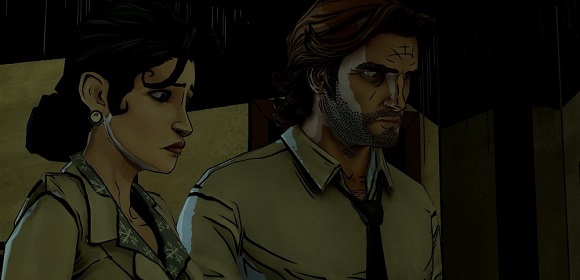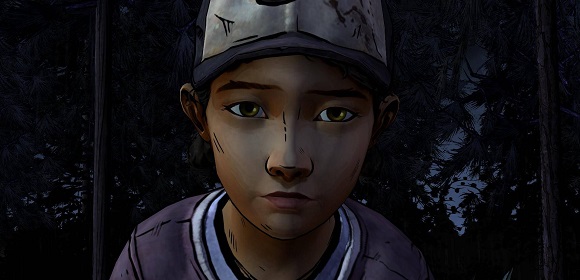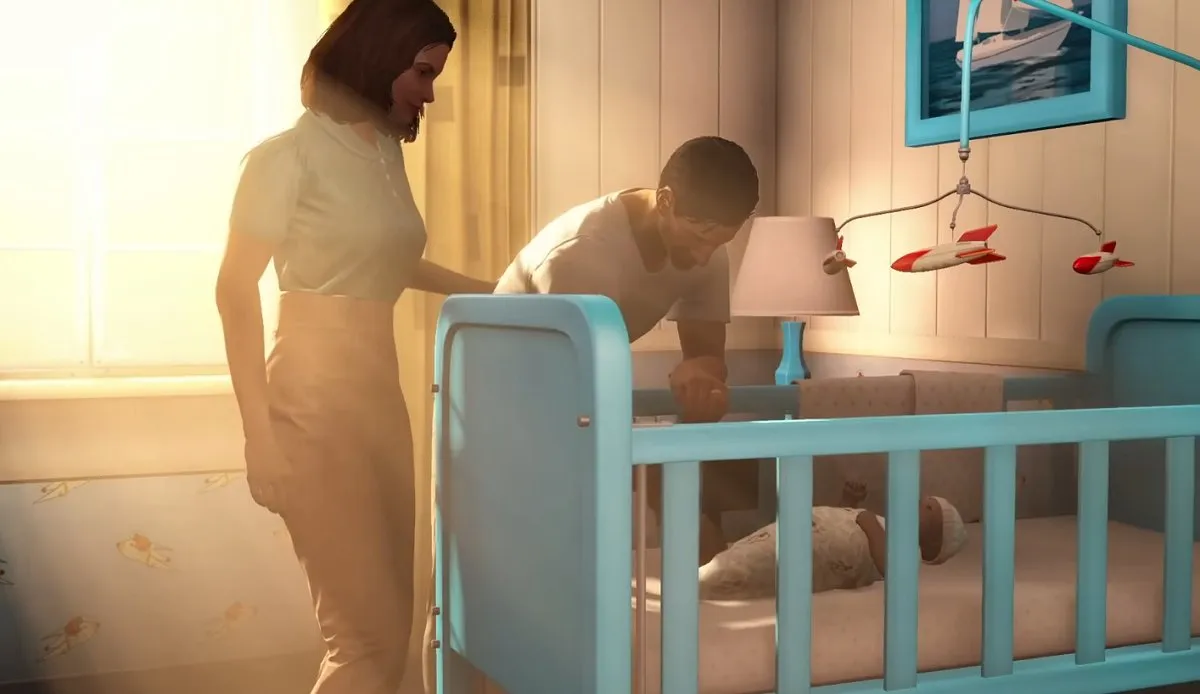The past six weeks have been crazy. Faced with a mountain of freelance deadlines, I arranged for some time off from writing game stuff, so as to preserve as many sanity points as possible. It wasn’t ideal, but as I wasn’t anticipating any big game releases beyond Transistor (review here), I figured I was safe to bow out for a little bit.
Murphy’s Law being what it is, this naturally meant that new episodes of The Walking Dead: Season Two and The Wolf Among Us were released in May.
After I finished shaking my fist at the sky and shouting “TELLTALE!”, I concluded that I’d just have to review them once things were back to normal. But by now, there are lots of reviews out there, and my two cents feel a bit stale. Instead, I’m going pick apart something both games have left me thinking about: what is it that makes the moral decisions in these two hit so hard?
While there are a great many things I love about games, interactive narratives are my bread and butter, and Telltale’s been killing it on that front. Maybe in more ways than they intended. I have a couple friends who abandoned The Walking Dead before completion because they found the decision-making too stressful. I had thought their reactions were in response to the pacing, and they were, in part. Dialogue choices usually have to be made within seconds, or you’ll lack the ability to make them at all. Spend too much time tugging your hair over a decision, and the other characters will take the conversation elsewhere, just as real people would. It’s nerve-wracking, no doubt, especially when the choices at hand involve emotionally-fraught things like life, death, and (gulp) makeshift trauma surgery. But after I finished the latest episode of The Wolf Among Us, it occurred to me that there’s another factor in there, one that really drives the point home: the lack of a morality system.
See, after I played, I sat brooding over the decisions I’d made for Bigby. His struggle with the monster within is one of the core themes of the story, but I wasn’t hung up on the questions of “to smash, or not to smash?” What was bugging me were his interactions with Snow. Fabletown’s new boss is taking a decidedly Lawful Good stance, vowing to do everything “by the book.” Bigby wants to please Snow. I want to please Snow. But I’m not sure the things she’s on about right now are necessarily the best course (I have no doubt this is influenced by me having read the comics and knowing how things go down on the farm). I made the best choices I could in the moment, but I remain unsure that they were the right thing to do. I’m not sure there was a right thing to do.

There have been many games with great stories that lack a Right Thing To Do, and it’s because of this that I started thinking about morality systems and story-based rewards. Over the past several months, my partner’s sister comes over every so often so that we can chip away at her first-ever video game—Dragon Age: Origins. I do the combat, she makes the roleplaying decisions. It’s agony for her (and it was for me, too, which is probably why I enjoy watching her squirm). We often sit there with a dialogue tree frozen in time, hashing out the quandary of the moment. Most of the time, she goes with what she thinks her character would do. Sometimes, her actions are colored by the opinions of her party members. I’m steadfast against spoiling plot elements for her, but the questions I will answer are ones of mechanics. Loot, mainly (she’s big on loot). Which choice leads to the better item? If we do the right thing, do we still get the good stuff? How will this affect who we can take into our next fight? And so on, and so forth.
It sounds shallow, I know, but everyone who takes part in roleplaying games does that. Much as I love and adore game stories, loot and skill points always factor into my decisions. True, I’ve turned down the good stuff in favor of making a decision that sat better with me. But I’ve also concocted elaborate moral justifications for actions that got me a better sword or a few more fighting units. I bet most folks reading this have done that, too. Few people choose Aldor or Scryer in World of Warcraft (if that rep grind is still a thing, that is) or make the Paarthurnax decision in Skyrim without hitting a wiki first. So often, story decisions are influenced (even if only slightly) by who we want to keep in our parties, what gear sets we want, what skill points we want to focus on. Popularity meters affect how much vendors will charge, or whether guards will attack on sight. Even when choices affect little but the flavor of the story or available dialogue, they’re usually still coded in some way (Renegade/Paragon, Charisma/Dignity/Ferocity, etc.). This tells us that our decisions fit into clear-cut categories. For the most part, moral decisions are quantifiable.
There’s nothing to quantify in The Walking Dead and The Wolf Among Us. To a large extent, this is due to genre—they’re adventure games, and adventure games typically don’t have skill trees. But eliminating that framework, I think, makes for more intense storytelling. This is not to say that other games don’t have gripping, edge-of-your-seat stories, too. I’d be a liar if I said The Walking Dead was the first game that made me weepy. But there’s always that little moment in RPGs or shooters, the moment when your stat-loving brain kicks in and wonders how this is going to affect your crit rating. Even if you choose to favor character over loot, that moment is there, and it creates distance between you and the story. Not so in the two games mentioned here. In them, it’s all about story, and nothing but the story, so help you god. I think that’s a big part of what makes these games land as heavily as they do. Decision-making feels organic, undiluted. The only thing that’s trackable is how many other players made the same decisions you did. There’s no judgment, no social coding. Just quiet statistics illustrating how arbitrary morality can be.
Not every game should be this way. There’s a time and a place for skill trees, too, and they scratch a very different itch. But I do think that devs who want to tell good stories would benefit from taking a look at how Telltale is… well, telling tales. Morality systems aren’t a bad thing, but I can’t help but wonder if games are outgrowing them in their current form. I’d welcome more storytelling that didn’t lead me to say things like, “Well, that felt gross, but at least I got this bitchin’ sword out of it.” There is nothing to gain from the decisions in The Walking Dead and The Wolf Among Us beyond the ability to sleep at night (or not). I like the space they give me to really focus on the consequences of my actions. I like that I’m never tempted to look things up on a wiki—partially because the decisions happen too fast, but also because the story is the entire point of playing. I like how honest their storytelling feels, even with zombies and fairy-tale characters thrown into the mix.
Erasing tried-and-true mechanics isn’t the answer here, nor should it be. You can already see evidence of the balance between the two evolving elsewhere (both Dragon Age and Mass Effect had notable changes in their morality systems between their first games and their sequels). And no, Telltale’s not the only developer taking a pared-down approach to storytelling. But for now, in my book, they’ve got the most elegant delivery out there. With as successful as their games have been, it’s likely that what they’re doing will creatively influence future games, regardless of genre. I’m excited to see where that leads.
Becky Chambers writes essays, science fiction, and stuff about video games. Like most internet people, she has a website. She can also be found on Twitter.
Are you following The Mary Sue on Twitter, Facebook, Tumblr, Pinterest, & Google +?









Published: Jun 6, 2014 12:30 pm